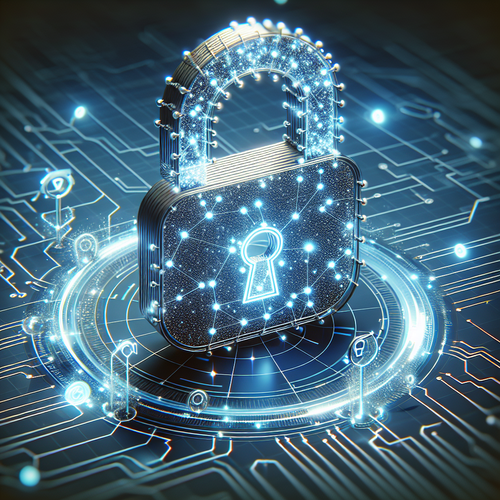
Decentralized Identity: Transforming Online Security
Decentralized Identity: Transforming Online Security
The digital landscape is evolving, and with it, the need for a robust security framework that can protect our identities online. Decentralized identity is emerging as a transformative solution that leverages blockchain technology to enhance online security, privacy, and user empowerment.
What is Decentralized Identity?
Decentralized identity refers to a model where individuals have control over their own identity data, rather than relying on central authorities or databases. This model enhances security and privacy by allowing users to manage their information directly and securely.
Key Features of Decentralized Identity
- User Control: Individuals can control their identity, deciding what information to share and with whom.
- Enhanced Security: Reduces the risk of data breaches, as identity information is not stored in centralized databases.
- Privacy: Users can maintain their anonymity and minimize data exposure in various transactions.
How Does it Work?
Decentralized identity systems utilize blockchain technology to create a verifiable and tamper-proof record of identity attributes. Users create a digital wallet containing their identity credentials, which can be verified without revealing the underlying data. This process often involves public and private keys for secure transactions.
Comparison with Traditional Identity Systems
Traditional identity systems typically rely on centralized databases managed by governments or corporations. This poses several risks:
- Data breaches can expose vast amounts of personal information.
- Central authorities may misuse or mishandle user data.
- Users have little control over their information.
In contrast, decentralized identity shifts the balance of power back to the individual, minimizing risks and empowering users.
Real-World Applications
Many sectors are exploring the implementation of decentralized identity models:
- Financial Services: Offering secure transactions without compromising user data.
- Healthcare: Allowing patients to control their medical information and share it selectively.
- Government: Issuing digital IDs that citizens can manage securely.
Benefits of Decentralized Identity
The adoption of decentralized identity systems brings numerous advantages:
- Increased Privacy: Users can participate in online activities without exposing unnecessary personal information.
- Streamlined Processes: Faster verification processes can enhance user experiences across various services.
- Interoperability: Users can interact with multiple platforms using the same identity credentials, reducing friction.
As organizations transition towards more user-centric approaches, decentralized identity systems represent a promising solution to traditional identity challenges.
Challenges Ahead
While the potential of decentralized identity is immense, the path ahead is not without challenges:
- Adoption Challenges: Gaining widespread acceptance requires education and trust in new technologies.
- Interoperability Issues: Ensuring that various decentralized identity solutions can work together is critical.
- Regulatory Landscape: Navigating regulations regarding identity management and data privacy will be essential.
Conclusion
Decentralized identity is poised to revolutionize the way individuals manage their identities online. By offering enhanced security, privacy, and user control, it can transform the landscape of online security and digital interactions. As we navigate these changes, it’s essential for individuals and organizations alike to stay informed and engaged in this evolving space.
For more insights on future security trends, check out our previous post on Decentralized Identity: The Future of Online Security.
Beyond enhancing security, it’s crucial to understand the implications and functionalities that decentralized identity brings to the broader context of personal and organizational security.













